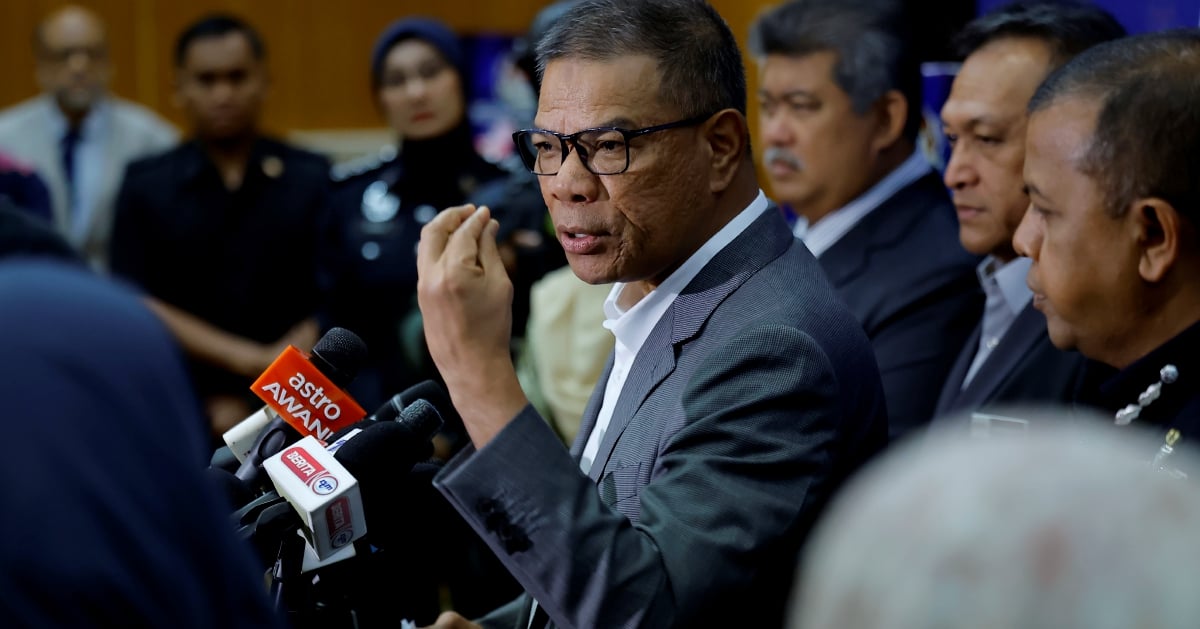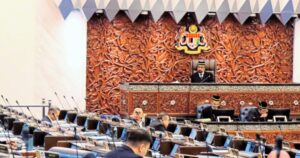PUTRAJAYA: The Federal Court’s decision to strike down Section 9(5) of the Peaceful Assembly Act 2012 has made it harder for police to manage public gatherings, says Home Minister Datuk Seri Saifuddin Nasution Ismail.
He said that while the government respects and will uphold the court’s decision, the ruling limits the ability of the police to plan and ensure the smooth running of assemblies.
“As a result, we cannot override the decision. But does it make things difficult for the police? Slightly, yes.
“Still, since the matter has been settled by the Federal Court, we will abide by it. The Peaceful Assembly Act remains in effect, except for Section 9(5), which has been declared unconstitutional,” he told reporters during a press conference at the Home Ministry’s monthly assembly here today.
Saifuddin said prior notice helps police plan effectively, including knowing the time, location, estimated crowd size, and number of personnel required.
“This isn’t about restricting anyone’s rights. It’s about facilitating assemblies. Without advance notice, the police are forced to mobilise all available resources just to prepare for unknown scenarios.”
He was responding to queries about the upcoming “Himpunan Selamatkan Malaysia: Turun Anwar,” scheduled to take place on July 26 in Kuala Lumpur.
The Federal Court had, in its ruling, struck down the provision that criminalises the failure to give police 10 days’ notice before holding an assembly, saying it contravenes the constitutional right to peaceful assembly.
However, Saifuddin said that while organisers are no longer legally required to notify the police, other provisions of the Peaceful Assembly Act remain in force — particularly those outlining the responsibilities of organisers and participants.
“The organiser’s responsibilities still apply. What is no longer required is advance notice to the police. But that doesn’t mean anything goes.
“The responsibilities of organisers and participants are clear — no dangerous weapons, no inciting speeches, especially those that touch on the monarchy or religion, and no bringing of children to assemblies.
“If they still bring children, and action is taken, don’t accuse the police of violating freedom of assembly. The relevant sections of the Act are still in force.”
He added that previous investigations under Section 9(1) have been halted under a moratorium, pending legal reforms.
“For instance, organisers must still obtain consent from the premises owner, although Section 11 is currently being reviewed and may eventually be removed. We have already taken progressive steps even before the court ruling,” he said.
He added that the government has never restricted freedom of speech or peaceful assembly, but all parties must comply with the law.
He said the police will continue to carry out their duties professionally and in line with existing laws.
“There’s no issue. The people are free to assemble — just cooperate with the police, don’t bring weapons, don’t incite unrest, and don’t bring children. That’s all.”
© New Straits Times Press (M) Bhd






